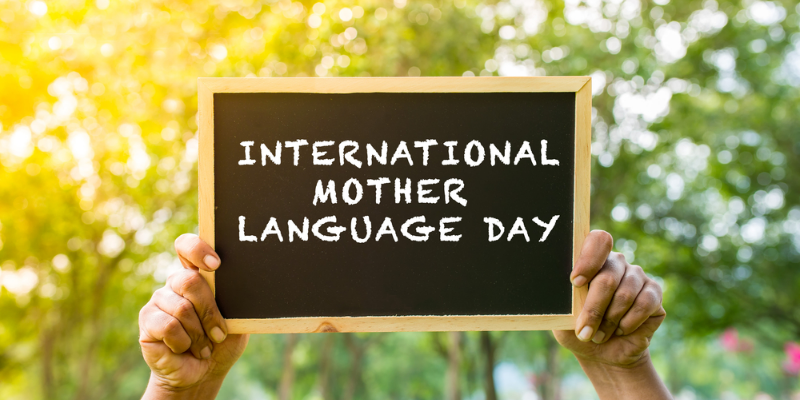International Mother Language Day
Language is a medium of communication. It is how individuals in a community pass information, ideals, experiences from one to another. It is also a vehicle for conveying culture.
There are about 6000 languages spoken all over the world but about 2580 of them are endangered. In Nigeria, most people are familiar with Hausa, Igbo and Yoruba as the 3 major tribes but there are over 300 languages spoken nationwide. From Jukun to Ebira to Egun, most states in the country speak an average of five languages. And for each language, there are numerous dialects. Despite the number of languages that Nigeria boasts, the official language is English. From the age of two, children are enrolled in school to learn how to read, write and speak English. It is common practice in primary and secondary schools for children to be penalized for speaking vernacular. English as a common language is supposed to level the playing field and make it easier for people to communicate with people of other tribes. In reality though, many Nigerians are neither adept at English nor at their native tongue. For this set, cultural identity is somewhat uncertain. They are never fully English nor fully Igbo, Yoruba, Hausa or whatever other tribe.
While speaking English is necessarily not a bad thing, this piece seeks to draw attention to the importance of language especially mother language in transmitting culture and cultural values. According to the UN in her article on Safeguarding Linguistic Diversity,“Languages are the most powerful instruments of preserving and developing our tangible and intangible heritage. All moves to promote the dissemination of mother tongues will serve not only to encourage linguistic diversity and multilingual education but also to develop fuller awareness of linguistic and cultural traditions throughout the world and to inspire solidarity based on understanding, tolerance and dialogue.…Linguistic diversity is increasingly threatened as more and more languages disappear. Globally 40 per cent of the population does not have access to an education in a language they speak or understand. Nevertheless, progress is being made in mother tongue-based multilingual education with growing understanding of its importance, particularly in early schooling, and more commitment to its development in public life.”
As we celebrate International Mother Language Day, this is a call to fellow Nigerians to speak their language as often as possible especially to their children as it is the surest way to keep alive the link we have to our roots.
Sources
http://www.multilingualchildren.orghttps://www.un.org
Image: https://dayfinders.com





